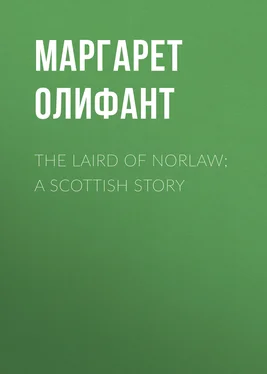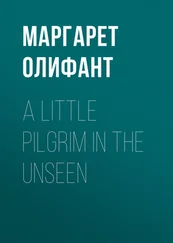Маргарет Олифант - The Laird of Norlaw; A Scottish Story
Здесь есть возможность читать онлайн «Маргарет Олифант - The Laird of Norlaw; A Scottish Story» — ознакомительный отрывок электронной книги совершенно бесплатно, а после прочтения отрывка купить полную версию. В некоторых случаях можно слушать аудио, скачать через торрент в формате fb2 и присутствует краткое содержание. Жанр: foreign_prose, literature_19, foreign_antique, на английском языке. Описание произведения, (предисловие) а так же отзывы посетителей доступны на портале библиотеки ЛибКат.
- Название:The Laird of Norlaw; A Scottish Story
- Автор:
- Жанр:
- Год:неизвестен
- ISBN:нет данных
- Рейтинг книги:3 / 5. Голосов: 1
-
Избранное:Добавить в избранное
- Отзывы:
-
Ваша оценка:
- 60
- 1
- 2
- 3
- 4
- 5
The Laird of Norlaw; A Scottish Story: краткое содержание, описание и аннотация
Предлагаем к чтению аннотацию, описание, краткое содержание или предисловие (зависит от того, что написал сам автор книги «The Laird of Norlaw; A Scottish Story»). Если вы не нашли необходимую информацию о книге — напишите в комментариях, мы постараемся отыскать её.
The Laird of Norlaw; A Scottish Story — читать онлайн ознакомительный отрывок
Ниже представлен текст книги, разбитый по страницам. Система сохранения места последней прочитанной страницы, позволяет с удобством читать онлайн бесплатно книгу «The Laird of Norlaw; A Scottish Story», без необходимости каждый раз заново искать на чём Вы остановились. Поставьте закладку, и сможете в любой момент перейти на страницу, на которой закончили чтение.
Интервал:
Закладка:
“We’ll a’ have cause,” said Marget, abruptly; “three bonnie lads that might be knights and earls, every one, and no’ a thing but debt and dool, nor a trade to set their hand to. Haud yer peace!—do ye think there’s no trade but bakers and tailors, and the like o’ that? and there’s Huntley, and Patie, and Cosmo, my bonnie bairns!—there never was three Livingstones like them, nor three of ony other name as far as Tyne runs—and the very bairn at the door has muckle to look to as they!”
“But it’s nae concern o’ yours, or o’ mine. I’m sure the maister was aye very good to me,” said Jenny, retiring into tears, and a non sequitur .
“No, that’s true—it’s nae concern o’ yours— you’re no’ an auld servant like me,” said her companion, promptly, “but for mysel’ I’ve sung to them a’ in their cradles; I would work for them with my hands, and thankful; but I wouldna desire that of them to let the like o’ me work, or the Mistress toil, to keep them in idleset. Na, woman—I’m jealous for my bairns—I would break my heart if Huntley was content to be just like his father; if either the Mistress or the lads will listen to me, I’ll gie my word to send them a’ away.”
“Send them away—and their mother in mourning? Oh, my patience! what for?”
“To make their fortune,” said Marget, and she hung the great pot on the great iron hook above the fire, with a sort of heroic gesture, which might have been amusing under other circumstances—for Marget believed in making fortunes, and had the impulse of magnificent hope at her heart.
“Eh, woman! you’re hard-hearted,” said her softer companion, “to blame the Maister at his last, and plan to leave the Mistress her lane in the world! I would make them abide with her to comfort her, if it was me.”
Marget made no answer—she had comforted herself with the flush of fancy which pictured these three sons of the house, each completing his triumph—and she was the byrewoman and had to consider the cattle, and cherish as much as remained of pastoral wealth in this impoverished house. She went out with her dark printed gown carefully “kilted” over her red and blue striped petticoat, and a pail in her hand. She was a woman of forty, a farm servant used to out-of-door work and homely ways, and had neither youth nor sentiment to soften her manners or enlarge her mind. Yet her heart smote her when she thought of the father of the house, who lay dying while she made her criticism upon him, true though it was.
“Has he no’ been a good master to me? and would I spare tears if they could ease him?” she said to herself, as she rubbed them away from her eyes. “But folk can greet in the dark when there’s no work to do,” she added, peremptorily, and so went to her dairy and her thoughts. Tender-hearted Jenny cried in the kitchen, doing no good to any one; but up-stairs in the room of death, where the family waited, there were still no tears.
CHAPTER II
Half a mile below Norlaw, “as Tyne runs,” stood the village of Kirkbride. Tyne was but one of the many undistinguished Tynes which water the south of Scotland and the north of England, a clear trout stream, rapid and brown, and lively, with linns and pools, and bits of woodland belonging to it, which the biggest brother of its name could not excel; and Kirkbride also was but one of a host of Kirkbrides, which preserved through the country, long after every stone of it had mouldered, the name of some little chapel raised to St. Bridget. This was an irregular hamlet, straggling over two mounds of rising ground, between which Tyne had been pleased to make a way for himself. The morsel of village street was on one bank of the water, a row of irregular houses, in the midst of which flourished two shops; while at the south end, as it was called, a little inn projected across the road, giving, with this corner, and the open space which it sheltered, an air of village coziness to the place which its size scarcely warranted. The other bank of the water was well covered with trees—drooping birches and alders, not too heavy in their foliage to hide the half dozen cottages which stood at different elevations on the ascending road, nor to vail at the summit the great jargonel pear-tree on the gable wall of the manse, which dwelt upon that height, looking down paternally and with authority upon the houses of the village. The church was further back, and partially hidden by trees, which, seeing this edifice was in the prevailing fashion of rural Scottish churches—a square barn with a little steeple stuck upon it—was all the better for the landscape. A spire never comes amiss at a little distance, when Nature has fair play and trees enough—and the hillock, with its foliage and its cottages, its cozy manse and spire among the trees, filled with thoughts of rural felicity the stray anglers who came now and then to fish in Tyne and consume the produce of their labor in the gable parlor of the Norlaw Arms.
The doctor had just passed through the village. On his way he had been assailed by more than one inquiry. The sympathy of the hamlet was strong, and its curiosity neighborly,—and more than one woman retired into her cottage, shaking her head over the news she received.
“Keep us a’! Norlaw! I mind him afore he could either walk or speak—and then I was in service, in the auld mistress’s time, at Me’mar,” said one of the village grandmothers, who stood upon the threshold of a very little house, where the village mangle was in operation. The old woman stood at the door, looking after the doctor, as he trotted off on his stout pony; she was speaking to herself, and not to the little audience behind, upon whom, however, she turned, as the wayfarer disappeared from her eyes, and laying down her bundle on the table, with a sigh, “Eh, Merran Hastie!” she exclaimed, “he’s been guid to you.”
The person thus addressed needed no further inducement to put her apron to her eyes. The room was very small, half occupied by the mangle, which a strong country girl was turning; and even in this summer day the apartment was not over bright, seeing that the last arrival stood in the doorway, and that the little window was half covered by a curtain of coarse green gauze. Two other village matrons had come with their “claes,” to talk over the danger of their neighbor and landlord, and to comfort the poor widow who had found an active benefactor in “Norlaw.” She was comforted, grateful and grieved though she was; and the gossips, though they looked grave, entered con amore into the subject; what the Mistress was likely to do, and how the family would be “left.”
“My man says they’ll a’ be roupit, baith stock and plenishing,” said the mason’s wife. “Me’mar himsel’ gave our John an insight into how it was. I judge he maun have lent Norlaw siller; for when he saw the dry-stane dike, where his ground marches with Norlaw, he gave ane of his humphs, and says he to John, ‘A guid kick would drive it down;’ says he, ‘it’ll last out his time, and for my part, I’m no a man for small fields;’ so grannie, there’s a family less, you may say already, in the country-side.”
“I’ll tarry till I see it,” said the old woman; “the ane of his family that’s likest Norlaw, is his youngest son; and if Me’mar himsel’, or the evil ane, his marrow, get clean the better of Huntley and Patrick, not to say the Mistress, it’ll be a marvel to me.”
“Norlaw was aye an unthrift,” said Mrs. Mickle, who kept the grocer’s shop in Kirkbride; “nobody could tell, when he was a young man, how he got through his siller. It aye burnt his pockets till he got it spent, and ye never could say what it was on.”
“Oh, whisht!” exclaimed the widow; “me, and the like of me, can tell well what it was on.”
Читать дальшеИнтервал:
Закладка:
Похожие книги на «The Laird of Norlaw; A Scottish Story»
Представляем Вашему вниманию похожие книги на «The Laird of Norlaw; A Scottish Story» списком для выбора. Мы отобрали схожую по названию и смыслу литературу в надежде предоставить читателям больше вариантов отыскать новые, интересные, ещё непрочитанные произведения.
Обсуждение, отзывы о книге «The Laird of Norlaw; A Scottish Story» и просто собственные мнения читателей. Оставьте ваши комментарии, напишите, что Вы думаете о произведении, его смысле или главных героях. Укажите что конкретно понравилось, а что нет, и почему Вы так считаете.












